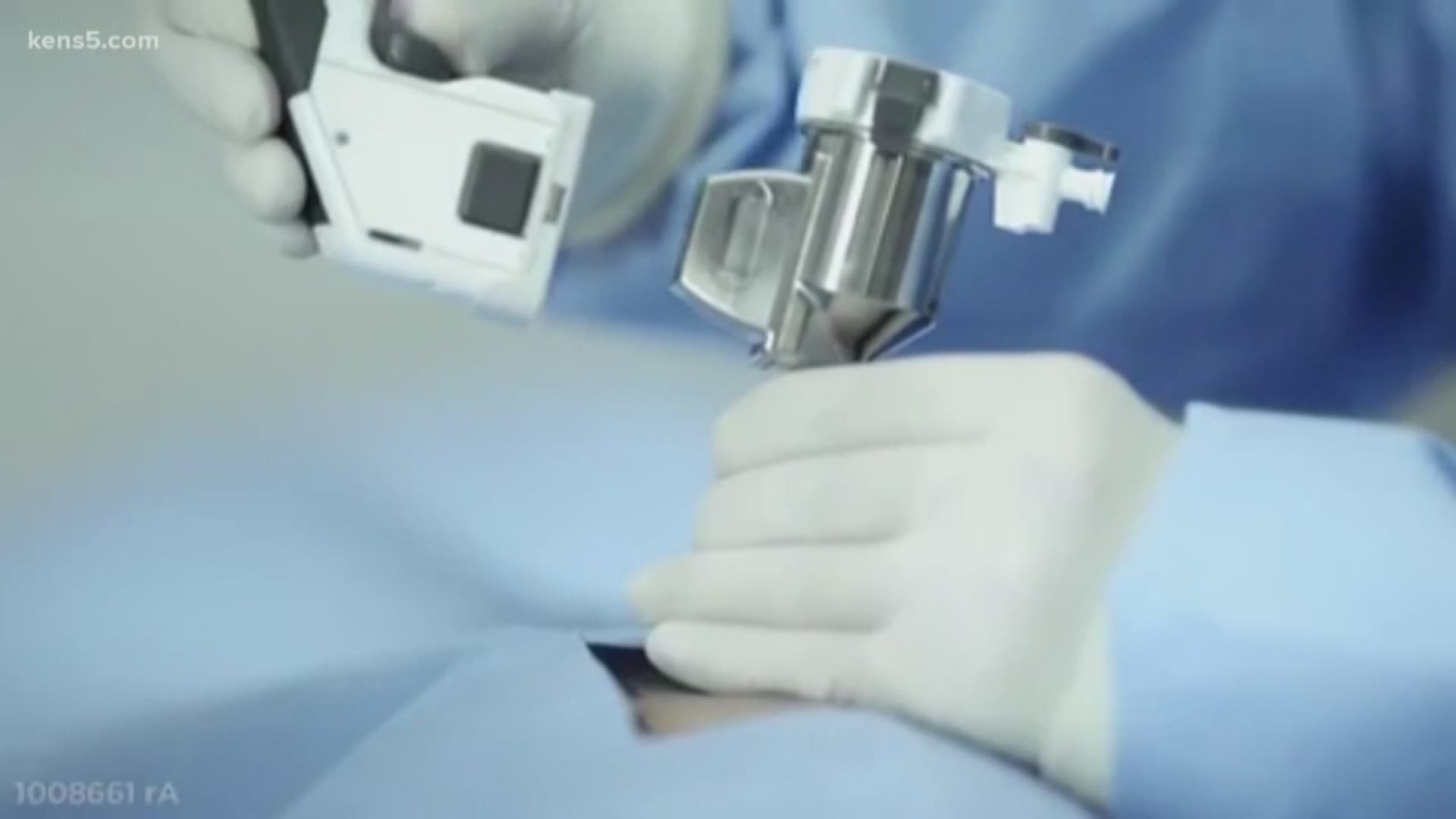SAN ANTONIO — Robotic surgery is quickly becoming the norm in many cancer procedures, thanks to its safety and more successful outcomes.
"TORS" stands for trans-oral robotic surgery. It is a surgical procedure performed completely through the patient's mouth using robotic technology to facilitate the procedure. Dr. Jay Ferrell, a head and neck surgeon with UT Health San Antonio and the Mays Cancer Center told us, "Anywhere we operate is high stakes real estate, very tight confines. It's a bit of a tricky proposition to get a large surgical robot into the patient's oral cavity."
But once the surgical robot and its instruments are in place, Dr. Ferrell said, "We get very good exposure that allows us to perform these surgeries in a safe and effective way."
The benefits of TORS include shorter hospital stays, lower risk of infection, quicker return to normal activity, reduced risk of long-term swallowing problems, and less scarring compared to open surgery. "There can be some delayed return to normal swallowing and speech, but it is much shorter than what we saw in the traditional surgical procedures," Dr. Ferrell said.
TORS is used to remove tumors from the back of the throat and to operate on cancers of the oropharynx, including the tonsils and the base of the tongue. In the past couple of decades, the number of people diagnosed with these cancers has been rising. "We quickly learned this was associated with the human papilloma virus, or HPV, which we've known for a long time causes cervical cancer in women," Dr. Ferrell said.
This year, it is estimated that 53,000 adults in the U.S. will be diagnosed with oral and oropharyngeal cancer. These types of cancers are twice as high in men than in women. Cancers of the oral cavity are the eighth most common cancer in men, with about 25 percent of cases occurring in those under the age of 55.
But now, thanks to TORS, surgeons can look at tumors from all angles to result in much better outcomes. "It allows you basically to look around the corners, at the back of the tongue, these types of things which normally you wouldn't have a line of sight for," Dr. Ferrell said. "It not only allows them to have an excellent survival expectation, but again, hopefully, have as limited of treatment side effects as possible."

